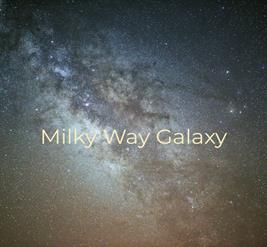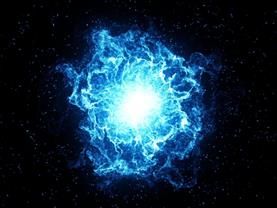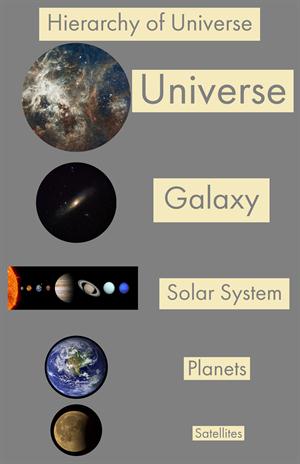
PUMPA - SMART LEARNING
எங்கள் ஆசிரியர்களுடன் 1-ஆன்-1 ஆலோசனை நேரத்தைப் பெறுங்கள். டாப்பர் ஆவதற்கு நாங்கள் பயிற்சி அளிப்போம்
Book Free DemoIn the night sky, Ravi started to count the stars one, two, three...
His father standing beside him, interrupted and told him counting stars is impossible, and there are billions of stars in the Universe. Ravi asked his father, what is Universe? He replied, "Everything we can touch, feel, sense, measure or detect is a part of universe. It includes all living things, planets, stars, galaxies, dust clouds, light, and even time". Before the birth of the Universe, time, space and matter did not exist.
Let us see what is universe and what are its constituents.
Universe
- The universe is a vast expanse of space.
- Earth is a part of the universe.
- The universe is believed to have come into existence after the Big Bang explosion.

- It consists of billions of galaxies, stars, planets, comets, asteroids, meteoroids and naturalsatellites, collectively known as Celestial Bodies.
- The universe is also known as Cosmos.
- Hence, the study of Universe is known as Cosmology.
Lightyear: It is the unit used to measure the distance between the celestial bodies.
A light-year is the distance traversed by light in a year at a velocity of 300,000 km per second.
Light year calculation:
Speed of light year in seconds
i.e. m
Big Bang Explosion
- The explosion took place about 15billion years ago.
- All the stars and celestial bodies came into existence as a result of this massive explosion.
- These celestial bodies together is called as Universe.

Hierarchy of Universe
Universe > Galaxy > Solar systems > Planets > Satellites

Galaxy
- It is a huge cluster of stars held together by gravitational force.
- It was formed about 5billion years after the Big Bang explosion.
- Our solar system is a part of the Milky Way galaxy.